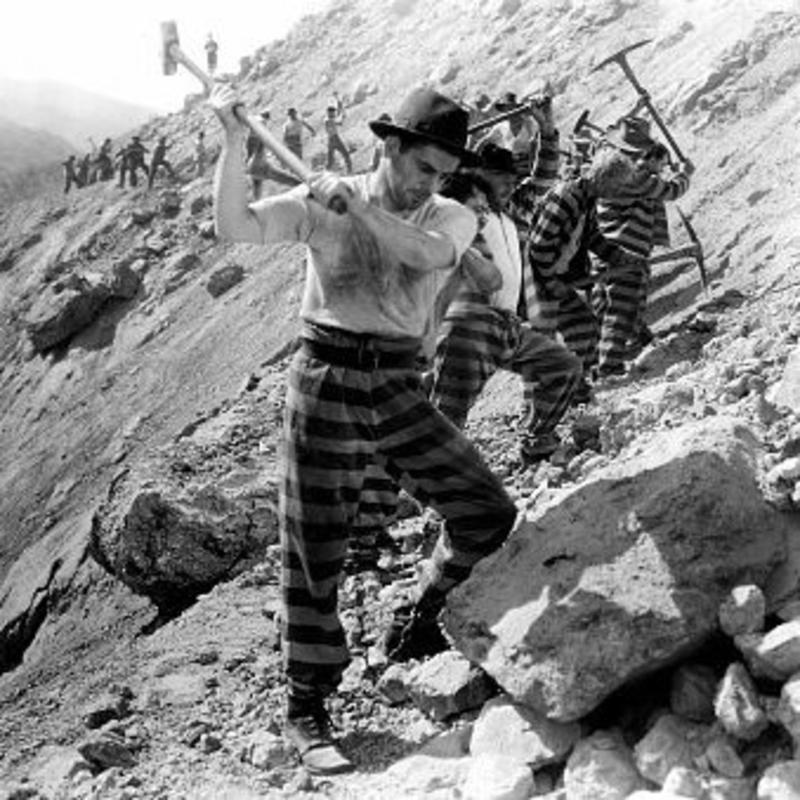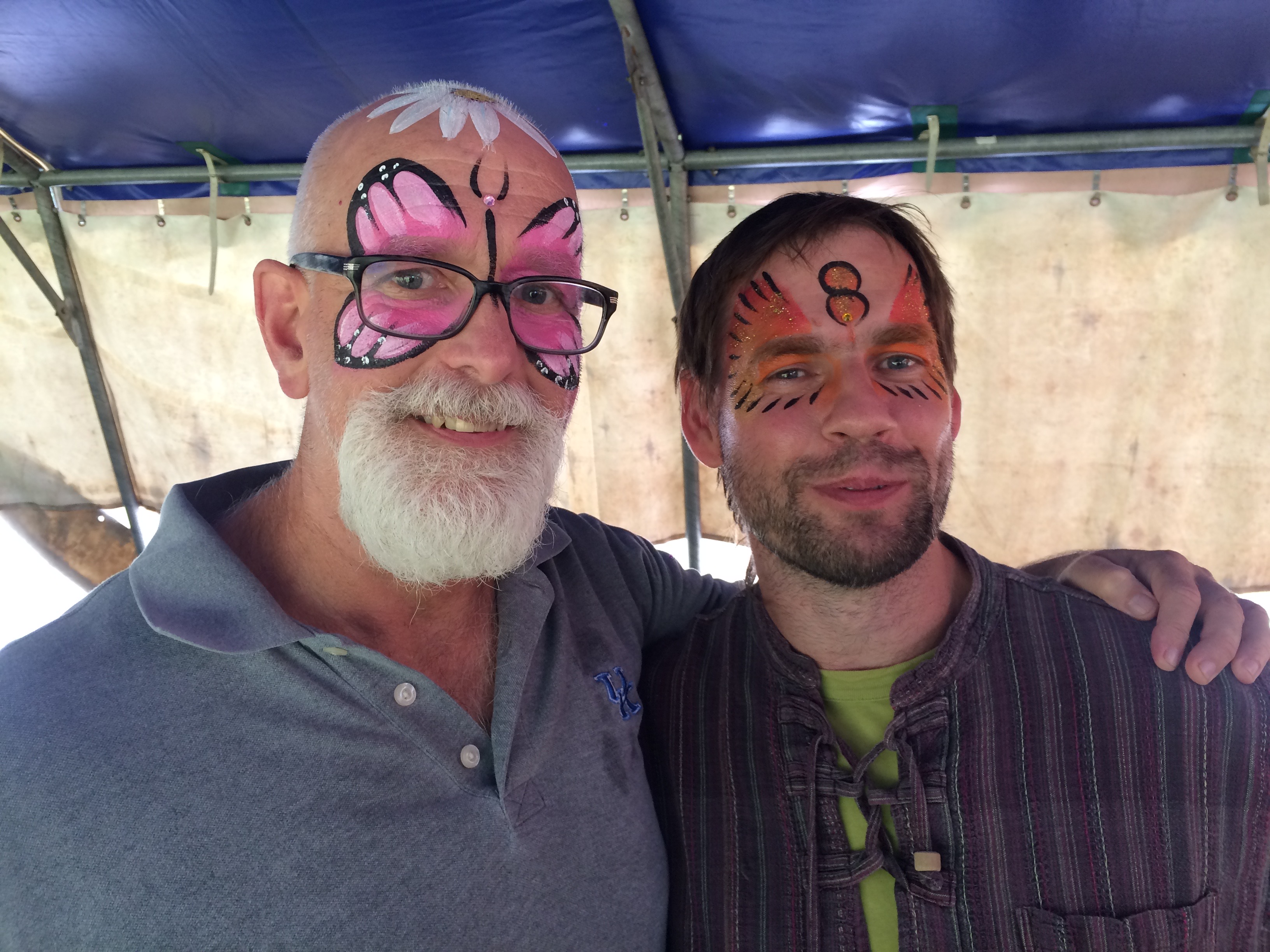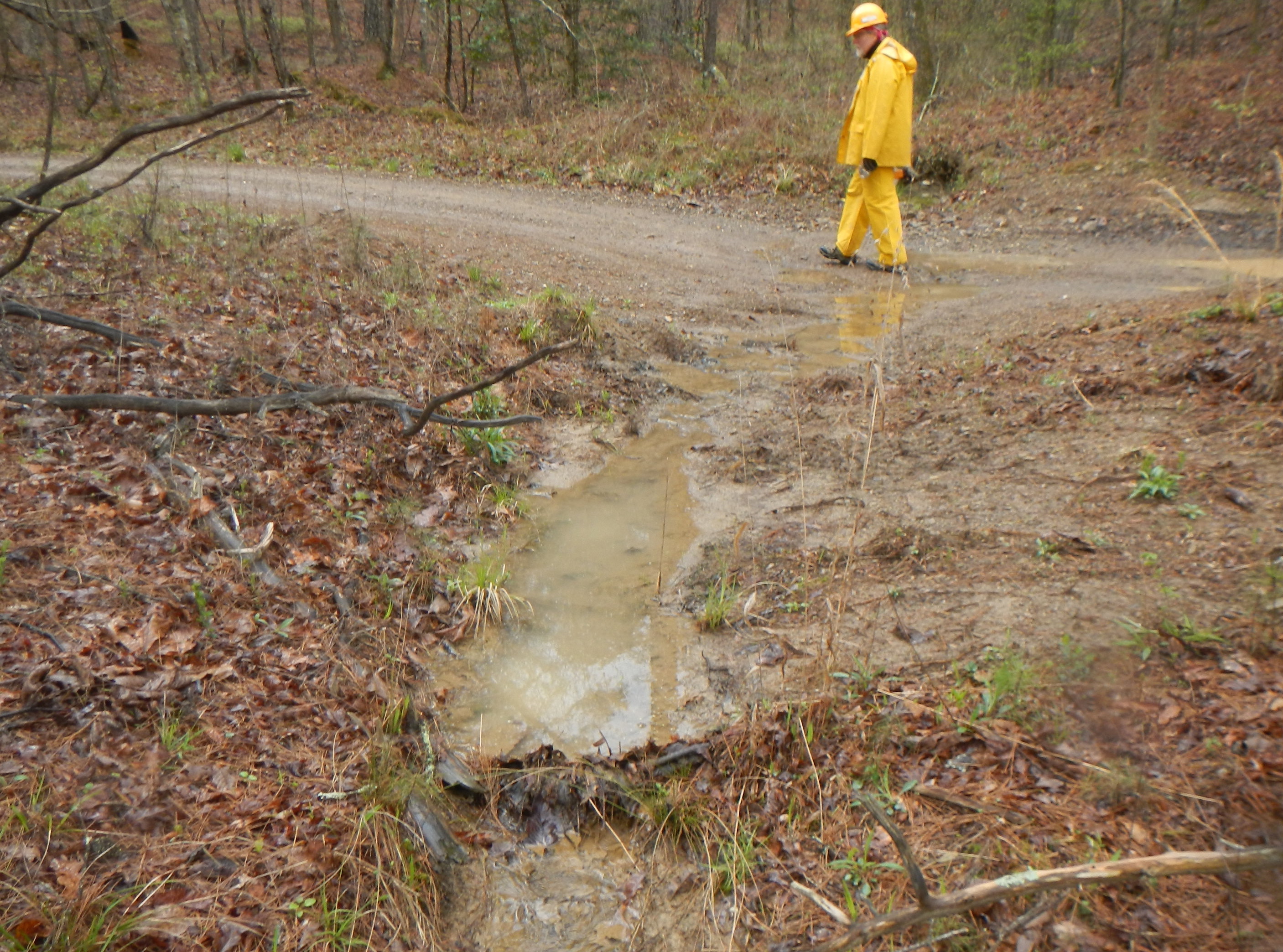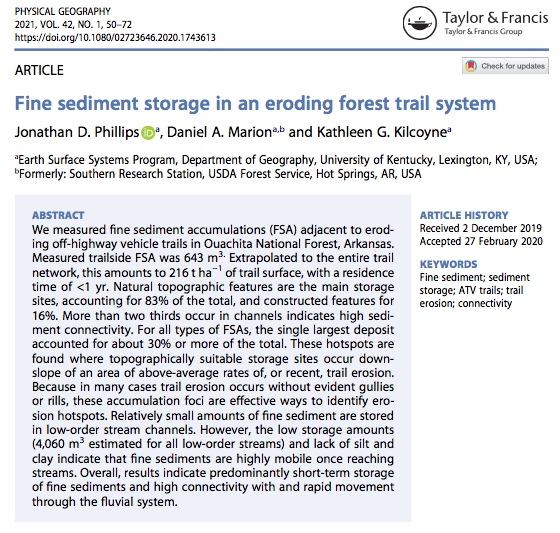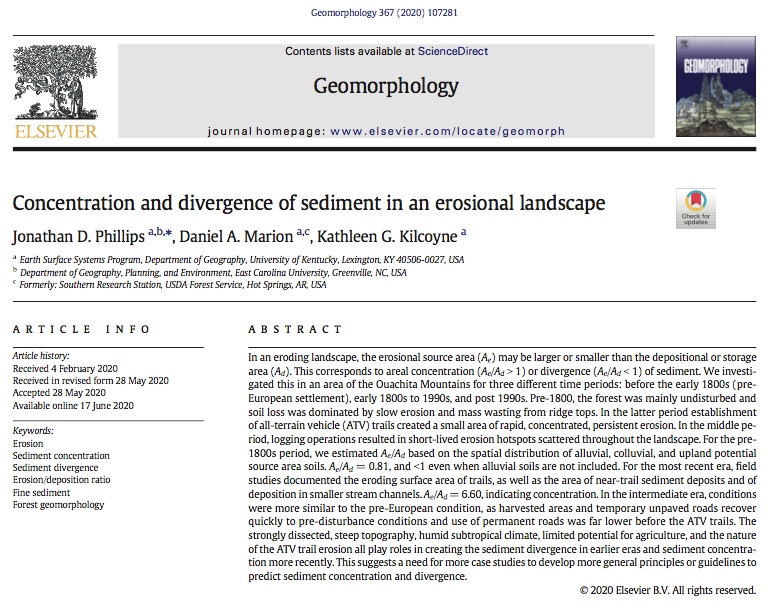THE SONGS OF LANDSCAPE EVOLUTION
My approach to the study of the structure, function, and evolution of Earth surface systems (landscapes) is based on the premise that they are controlled and influenced by three sets of factors, summarized as laws, place, and history. Law represents laws per se, such as the conservation of mass, energy, and momentum, and also for other generalizations and representations that are independent of location and time. Place represents the environmental context in which laws operate – ‘other things’ that are rarely equal. Path-dependent, historically contingent aspects of landscapes comprise the history. These may include sensitivity to initial conditions, previous evolutionary or developmental pathways, stages of development, disturbance histories, and time available for system development or evolution.
My work and my approach also emphasize multiple possible evolutionary pathways and outcomes, the sensitivity of many Earth surface systems to seemingly minor variations and disturbances, and the amazing variety of landscapes resulting therefrom. These are discussed in fascinating/excruciating detail in my to-be-published-any-day-now book, Landscape Evolution.

